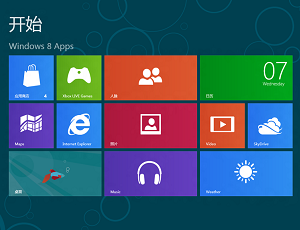Opening a Door, Closing a Window for Microsoft in China
 SHANGHAI—This has been a year of highs and lows for Microsoft in China. The good news is the company’s flagship video game console, the Xbox One, will likely be the first foreign console to hit the shelves in China following the repeal of a 14-year ban on such items. The bad news?—Windows 8, the company’s latest operating system, has been banned for government use.
SHANGHAI—This has been a year of highs and lows for Microsoft in China. The good news is the company’s flagship video game console, the Xbox One, will likely be the first foreign console to hit the shelves in China following the repeal of a 14-year ban on such items. The bad news?—Windows 8, the company’s latest operating system, has been banned for government use.
The ban is to be applied to all desktop, laptop and tablet computers, reported state media outlet Xinhua, and comes in the wake of Microsoft’s withdrawal of security support for Windows XP. The now 12 year-old operating system remains the most widely used operating system in China. Paradoxically, the announcement cited concern over using an unsecure operating system as the reason behind the ban.
There are indications that a domestically produced Linux-based OS, such as Kylin or Start OS might be poised to take up the lost market share. Despite state backing, a previous attempt to create a homegrown OS, Red Flag Linux, failed spectacularly earlier this year—racking up US$2.5 million in unpaid employee wages.
The announcement came as a surprise to Microsoft, which has otherwise walked a fine line to secure its hold on the Chinese market. On multiple occasions the company has shown its willingness to accommodate demands for Internet censorship—going so far as to censor politically sensitive content in Bing.com searches conducted outside of China.
RELATED: Ban on Video Game Consoles Tentatively Lifted in the Shanghai FTZ
Though statistics on just how many devices the ban is likely to affect are hard to come by, the massive size of the Chinese government extends across some 33 provincial-level administrative regions and their network of local governments. And while the announcement claimed the ban would not affect the personal computer market, the software preferences of government offices have a tendency of setting nationwide trends. For example, it is largely attributed to government and bank use that China is one of only a few countries in the world where Internet Explorer still reigns supreme, with a 47 percent market share in mid-2013.
Similar to the case with Windows XP, outdated versions of Internet Explorer have retained an impressive market share in China, despite known security issues and Microsoft’s best efforts to get users to update to later versions. Both trends are linked to the prevalence of software piracy in the country, where users commonly disable automatic updates in illegal copies of software.
To date, Microsoft has borne these blows with notable restraint. When launching Windows 7 in 2009, the company ran an anti-piracy campaign focused on the benefits to work productivity of using licensed software. However, in 2011 then-CEO of Microsoft Steve Ballmer disclosed that owing to piracy the company earned less revenue in China than it did in the Netherlands, despite their difference in market size.
RELATED: China’s New Trademark Law to Come Into Effect May 1
The recent lifting of China’s 14-year ban on foreign video game consoles gives the company reason to tread lightly in response to this week’s announcement. In April of this year, foreign manufacturers were given the go-ahead to begin producing video game consoles in the Shanghai Free Trade Zone for sale to mainland China. Even while the ban was still in place, the video game industry in China generated US$13 billion in revenue last year and posted a 38 percent year-on-year increase. The Xbox One is set to be the first console to hit the Chinese market through Microsoft’s joint-venture with BesTV New Media.
Asia Briefing Ltd. is a subsidiary of Dezan Shira & Associates. Dezan Shira is a specialist foreign direct investment practice, providing corporate establishment, business advisory, tax advisory and compliance, accounting, payroll, due diligence and financial review services to multinationals investing in China, Hong Kong, India, Vietnam, Singapore and the rest of ASEAN. For further information, please email china@dezshira.com or visit www.dezshira.com.
Stay up to date with the latest business and investment trends in Asia by subscribing to our complimentary update service featuring news, commentary and regulatory insight.
Related Reading
China’s Tech Industry Booms as Alibaba Files for Initial Public Offering
Google Builds Presence in Asia as Internet Usage Soars
Microsoft to Launch Stricter Anti-Piracy Campaign in China
- Previous Article Hong Kong Considers Easing Housing Market Restrictions
- Next Article RMB Internationalization and the Shanghai FTZ










